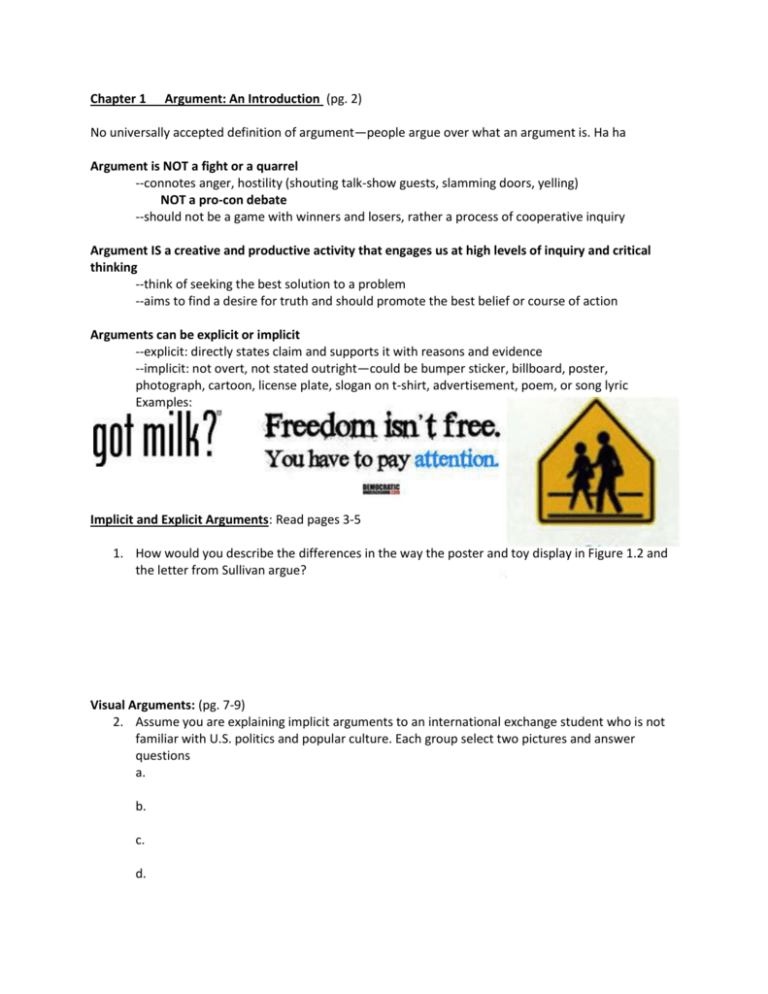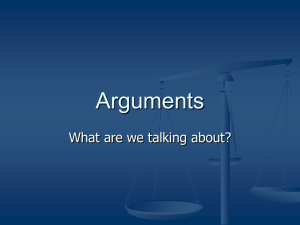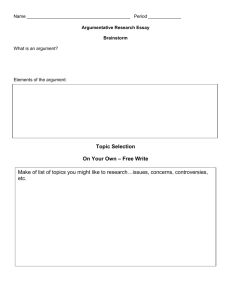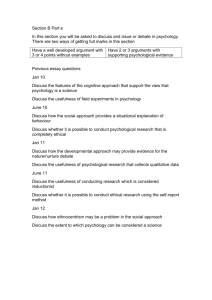Truth Seeking - SkiadasWeebly.com
advertisement

Chapter 1 Argument: An Introduction (pg. 2) No universally accepted definition of argument—people argue over what an argument is. Ha ha Argument is NOT a fight or a quarrel --connotes anger, hostility (shouting talk-show guests, slamming doors, yelling) NOT a pro-con debate --should not be a game with winners and losers, rather a process of cooperative inquiry Argument IS a creative and productive activity that engages us at high levels of inquiry and critical thinking --think of seeking the best solution to a problem --aims to find a desire for truth and should promote the best belief or course of action Arguments can be explicit or implicit --explicit: directly states claim and supports it with reasons and evidence --implicit: not overt, not stated outright—could be bumper sticker, billboard, poster, photograph, cartoon, license plate, slogan on t-shirt, advertisement, poem, or song lyric Examples: Implicit and Explicit Arguments: Read pages 3-5 1. How would you describe the differences in the way the poster and toy display in Figure 1.2 and the letter from Sullivan argue? Visual Arguments: (pg. 7-9) 2. Assume you are explaining implicit arguments to an international exchange student who is not familiar with U.S. politics and popular culture. Each group select two pictures and answer questions a. b. c. d. Defining Features of Argument (pg. 10) Argument requires justification for its claims --“yes I can” “no you can’t” “yes I can” is a quarrel, not an argument --“but I am sixteen years old!” moves toward argument—offers a REASON for her assertion Necessary conditions for argument: (1) a set of two or more conflicting assertions and (2) attempt to resolve the conflict through an appeal to reason. Good arguments must clarify and support the reasons presented. --anticipate questions --examine own beliefs --consider and justify assumptions Argument is both process and product Argument combines truth seeking and persuasion (read and see chart on pg. 13) Truth Seeking l l l l l l l l l l l l l l l l l l Persuasion Argument and the Problem of Truth (pg. 15) Sophists: professional rhetoricians who trained speakers to win arguments—would argue any side willing to pay them Socrates: valued truth seeking over persuasion—peel away false arguments, commit to the right course of action Sophistry is now synonymous with trickery in argument Contemporary sophists: different degrees of truth, different kinds of truths for different situations and cultures “We are condemned (or liberated) to live in a pluralistic, multicultural world with competing visions of the truth.” Argument in Action (pg. 17) Case 1: College Athletes Caught in a Tangled Web Read the directions. In pairs, consider your arguments based on your roles. Those without roles will be in charge of conducting the meeting. a. frat students b. non-athletes c. faculty members d. women’s basketball coach e. tennis coach f. athletic director g. ACLU rep h. Dean of Students Committees (pg. 18) The Declaration of Independence is a committee document. U.S. Supreme Court works as a committee






